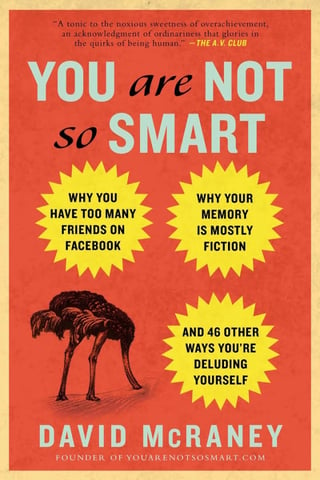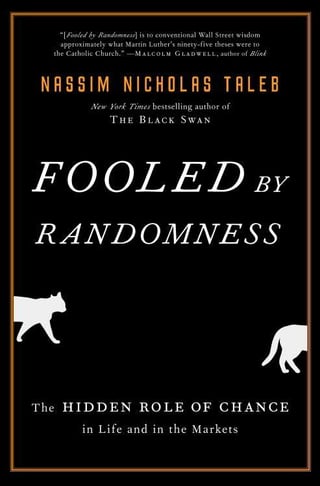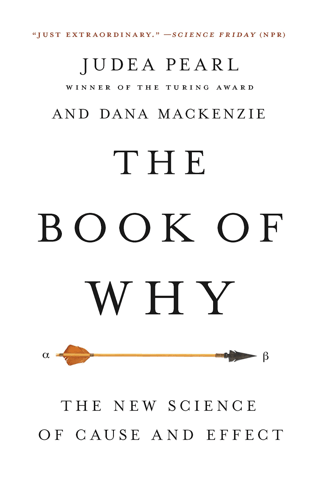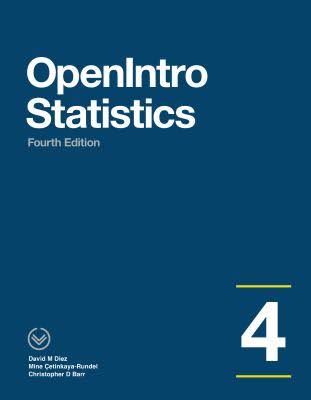How to learn Statistics in 2025 – Complete Guide and Resources
Last updated: May, 2025 • 13 min read
In this comprehensive guide, we'll walk you through the best ways to learn Statistics, from recommended books and courses to finding expert mentors who can accelerate your learning journey.
Before diving into learning Statistics, a word of caution: While there are many resources available online, it's important to follow a structured learning path and avoid getting overwhelmed. Having a clear goal and roadmap will help you stay focused and make steady progress.
If you're looking for a more guided approach, you may want to check out our Statistics mentors who can help create a personalized learning plan and provide expert guidance throughout your journey.
Getting started with Statistics
In this guide, we'll cover:
- Learning Resources - Recommended books and online courses to build your Statistics knowledge
- Expert Guidance - Finding mentors and joining communities
- Certifications - Professional certifications to validate your Statistics skills
- Career Development - Building a portfolio and preparing for jobs
Let's explore each of these areas to help you create an effective learning path for mastering Statistics.
How can I start learning Statistics?
Getting started with Statistics is very achievable with the right approach and resources. Here are some key steps to begin your learning journey:
- Start with fundamentals. Begin by learning the core concepts and principles of Statistics. This builds a strong foundation for more advanced topics;
- Take online courses. Platforms like Coursera, Udemy, and edX offer structured Statistics courses for beginners. These provide guided learning with hands-on practice;
- Read documentation and books. Official documentation and recommended books can deepen your understanding of Statistics concepts;
- Connect with a mentor. Our experienced Statistics mentors can create a personalized learning plan and guide you through your journey efficiently.
Can I learn Statistics on my own?
While self-study is possible, having expert guidance can save you months of trial and error and help you avoid common pitfalls. Here's what to consider:
- Self-paced learning. Online resources and tutorials let you learn at your own speed, but it can be challenging to know if you're on the right track;
- Community support. Join online communities and forums to get help, though responses may vary in quality and accuracy;
- Professional mentorship. Working with a Statistics mentor provides personalized feedback, industry insights, and accountability to keep you progressing;
- Structured approach. A mentor can create a customized learning path based on your goals and current skill level.
Can I learn Statistics in one month?
While you can grasp basic concepts of Statistics in a month with dedicated study, becoming proficient typically takes longer. Here's a realistic timeline:
- First month. Master fundamental concepts and basic principles of Statistics;
- 3-6 months. Develop intermediate skills and work on increasingly complex projects;
- 6-12 months. Build advanced knowledge and professional-level expertise;
- Accelerated learning. Working with one of our expert Statistics mentors can significantly speed up this timeline through focused guidance and industry best practices.
Learning Resources for Statistics
One of the most effective ways to build a strong foundation in Statistics is through carefully selected learning resources. Let's explore some key materials that can help you master this field.
Essential Reading Materials
Books remain one of the most comprehensive ways to learn Statistics in depth. They provide structured knowledge and detailed explanations that are often missing from online tutorials. Here are some recommended reading approaches:
- Start with beginner-friendly books that introduce core concepts and fundamentals
- Progress to intermediate texts that cover more advanced topics and real-world applications
- Keep reference books handy for looking up specific concepts and techniques
Recommended Books for Statistics

You Are Not So Smart
Whether you’re deciding which smartphone to purchase or which politician to believe, you think you are a rational being whose every decision is based on cool, detached logic. But here’s the truth: You are not so smart. You’re just as deluded as the rest of us—but that’s okay, because being deluded is part of being human. Growing out of David McRaney’s popular blog, You Are Not So Smart reveals…

Fooled by Randomness: The Hidden Role of Chance in Life and in the Markets
Fooled by Randomness is a standalone book in Nassim Nicholas Taleb’s landmark Incerto series, an investigation of opacity, luck, uncertainty, probability, human error, risk, and decision-making in a world we don’t understand. The other books in the series are The Black Swan, Antifragile, Skin in the Game, and The Bed of Procrustes. Fooled by Randomness is the word-of-mouth sensation that will …

The Book of Why
"Correlation is not causation." This mantra, chanted by scientists for more than a century, has led to a virtual prohibition on causal talk. Today, that taboo is dead. The causal revolution, instigated by Judea Pearl and his colleagues, has cut through a century of confusion and established causality -- the study of cause and effect -- on a firm scientific basis. His work explains how we can k…

OpenIntro Statistics
The OpenIntro project was founded in 2009 to improve the quality and availability of education by producing exceptional books and teaching tools that are free to use and easy to modify. Our inaugural effort is OpenIntro Statistics. Probability is optional, inference is key, and we feature real data whenever possible. Files for the entire book are freely available at openintro.org, and anybody …
Online Learning Platforms
Online courses provide structured learning paths with hands-on practice. Here are some recommended platforms and course types:
- Interactive courses - Learn by doing with coding exercises and projects
- Video tutorials - Watch expert instructors explain concepts step-by-step
- Practice exercises - Reinforce learning through hands-on challenges
Recommended Courses for Statistics
Statistics for Data Science and Business Analysis
Become a Probability & Statistics Master
Statistics for Business Analytics and Data Science A-Z™
Statistics and Hypothesis Testing for Data science
Get help with your learning journey
Learning Communities and Support
Having the right support system is crucial for learning Statistics. Here are some ways to get help:
- MentorCruise Community - Join our active community of learners and mentors to get support on your journey
- 1:1 Mentorship - Get personalized guidance from our expert Statistics mentors
- Work Reviews - Have experienced Statistics mentors review your work and provide detailed feedback
- Discussion Forums - Connect with peers to share knowledge and ask questions
- Interactive Workshops - Accelerate your learning with Statistics workshops led by industry experts
Ready to accelerate your learning? Find a Statistics mentor who can guide you through these steps and provide personalized support.
Expert Guidance
Learning Statistics is more effective with expert guidance. Our mentors provide:
- Personalized Learning Plans - Get a customized roadmap based on your goals and current skill level
- Industry Best Practices - Learn professional standards and workflows
- Career Development - Get advice on job searching, resume building, and career advancement
- Consulting Services - For businesses and teams, our Statistics consultants provide professional guidance and implementation support
Want more options? Browse all 43 Statistics mentors to find the perfect match for your goals.
Professional Certifications
Earning certifications can validate your Statistics skills and boost your career prospects. Here are some recommended certifications:
Bayesian Statistics Specialization
Hosted by coursera.org
This Specialization is intended for all learners seeking to develop proficiency in statistics, Bayesian statistics, Bayesian inference, R programming, and much more. Through four complete courses (From Concept to Data Analysis; Techniques and Models; Mixture Models; Time Series Analysis) and a c…
Statistics with Python Specialization
Hosted by coursera.org
This specialization is designed to teach learners beginning and intermediate concepts of statistical analysis using the Python programming language. Learners will learn where data come from, what types of data can be collected, study data design, data management, and how to effectively carry out…
Business Statistics and Analysis Specialization
Hosted by coursera.org
The Business Statistics and Analysis Specialization is designed to equip you with a basic understanding of business data analysis tools and techniques. Informed by our world-class
Data Science master's
and PhD course material, you’ll master essential spreadsheet functions, build des…
Introduction to Statistics
Hosted by coursera.org
Stanford's "Introduction to Statistics" teaches you statistical thinking concepts that are essential for learning from data and communicating insights. By the end of the course, you will be able to perform exploratory data analysis, understand key principles of sampling, and selec…
Our mentors can help you prepare for these certifications through:
- Exam Preparation - Get structured guidance to master certification topics
- Practice Tests - Work through sample questions and mock exams
- Study Planning - Create an effective study schedule to achieve your certification goals
- Hands-on Practice - Apply certification concepts through practical exercises
Career Guidance
Beyond technical skills, succeeding in Statistics requires strategic career planning. Our career mentors provide:
- Industry Insights - Get insider knowledge about Statistics roles and companies
- Career Strategy - Build a roadmap to reach your professional goals
- Resume & Portfolio Review - Optimize your professional materials for Statistics positions
- Interview Preparation - Practice technical and behavioral interviews with experienced professionals
Ready to accelerate your Statistics career? Connect with a career mentor to start building your professional future.
Quick Summary
- 🎯 Best for: beginners and intermediate learners
- ⏱️ Learning time: 8 certification paths available
- 💰 Required investment: Courses, books and mentorship to certification (~$500)
- 🎓 Prerequisites: None
- 🔗 Related fields: Deep Learning, Artificial Intelligence, Natural Language Processing, Data Analytics








